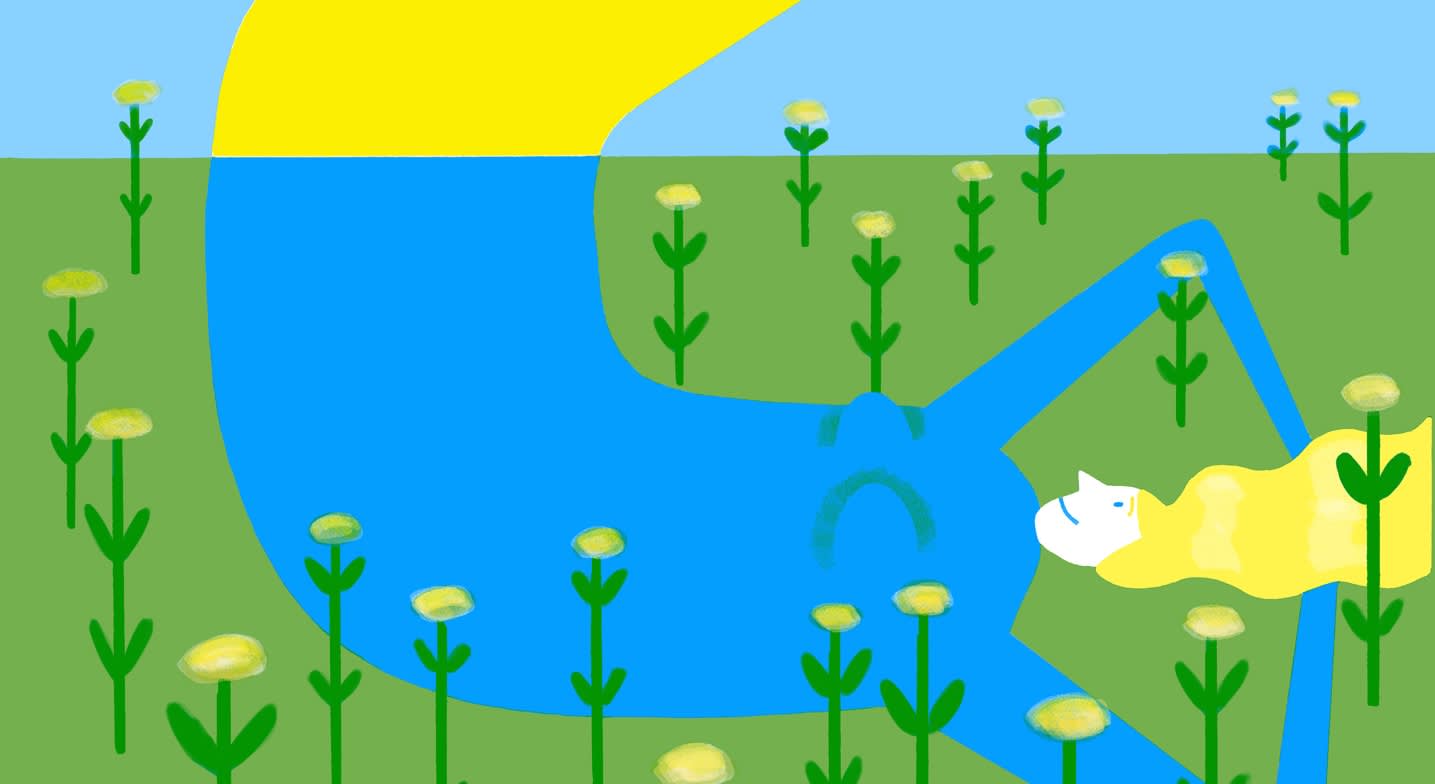Happy 4.5 billionth Earth Day, everybody! Just how long would it take to listen to an entire, comprehensive history of the planet? (Answer: There isn’t an ‘X’ speed fast enough.) But it is possible to chip away at the mysteries and history of our great big green-blue swirling marble in the sky. Just break down the Earth into simpler parts — plants, animals, and environment — and dig a little into each one.
Earth Day seems like the perfect opportunity to do that. The annual event started April 22, 1970 to increase public awareness about environmental concerns and soon led to the foundation of the Environmental Protection Agency and instrumental policy changes. It’s now celebrated around the globe.
This year’s occasion made me wonder just how much I actually knew about our planet. My bold admission is … not much. And so, in a small ode to Drake, I started from the bottom and began to explore the deep blue sea.
My only knowledge of sponges comes from a 22-year-oldSeinfeld, and although I’m no marine biologist, I don’t believe Peter Godfrey-Smith is talking about the same kind of sponge in his book Other Minds, which explores the consciousness of cephalopods from a philosophical context — beginning by tracing the history of evolution all the way back to, you guessed it, sponges.
Who can walk the streets of New York the same way after learning that rats like to be tickled?
“The octopus is the closest we will come to meeting an intelligent alien,” he writes in his insightful and moving book, and I picture, on some distant planet, an alien shedding a single tear.
Science writer Virginia Morell also dives into the inner world of animals with her book Animal Wise, calling the animal mind “one of the most forbidden realms on Earth.” She makes short work of illuminating and classifying animal traits that are wholly unique and surprising. Cows, apparently, have regional accents. Who can walk the streets of New York the same way after learning that rats like to be tickled?
Meanwhile, The World Without Us by Alan Weisman poses the question: What would happen to the world if humans disappeared? Would the flora and fauna rejoice — “heave a huge biological sigh of relief,” as Weisman writes — or would the world actually miss us?
In one engrossing chapter, he describes with rich detail how exactly (and how fast) the New York subways would become flooded and erode the city; how the asphalt jungles would give way to real ones ruled by megafauna, those large mammals weighing over 100 pounds, which would quickly become kings. This book, with its rigorous research and image-rich writing, is music to the ears of anyone wishing someone would tell them our planetary harm is reversible. (Spoiler alert: It mostly is, but it will take a lot of time, and humans have to go away first.)
“But if your attention strays for a second, when you look back there will be an octopus quietly crawling across the floor.”
Learning about a possible homo sapiens deficient endgame is perhaps the fastest cure for “nature deficit disorder,” an apt term for humans not taking advantage of their surroundings discussed in The Nature Fix.
Symptoms of NDD include dull skin and a vitamin D deficiency. The cure is to gather all your strength and … walk outside. Because according to Nature Fix author Florence Williams, nature makes us happier, healthier, more creative and empathetic. “Nature, it turns out, is good for civilization,” she writes. Our surroundings play a huge role in cultivating happiness — Williams herself was depressed and disoriented after moving from an idyllic small mountain city to Washington D.C., realizing that, indeed, you don’t know what you’ve got ‘til it’s gone.
But oh, this book was a spark of inspiration! Hearing about the benefits of going outdoors made me embarrassed to share that my step count on certain days hovers in the double digits, and while my local park can’t compete with South Korea’s popular Jangseong Healing Forest featuring two-and-a-half million cypress trees, its few good magnolias provide a similar restorative benefit. And so, to pre-emptively celebrate Earth Day, I took myself for a simple walk. And it was lovely.
Cue up one of these thought-provoking titles, go outside, and observe what just might be the greatest show on Earth.
Well, This Is Faintly Terrifying
“Captive octopuses often try to escape, and when they do, they seem unerringly to pick the one moment you aren’t watching them. If you have an octopus in a bucket of water, for example, it will often look content enough in there, but if your attention strays for a second, when you look back there will be an octopus quietly crawling across the floor.”A Quiet But Powerful Call to Action
“The greatest threat to all wild animals is the loss of habitat — the destruction of the areas and resources they need to survive. Climate change is exacerbating the pressures, forcing some species to move to higher elevations or toward the edges of their ranges. There aren’t any easy or ready solutions, and I’m not pretending to offer any here. But as we wrestle with these matters, we would do well to remember that the animals our decisions affect are, like us, beings who have minds.”What's Old Is New Again
Until then, more coyotes follow the footsteps of the intrepid ones that managed to reach Central Park. Deer, bear, and finally wolves, which have reentered New England from Canada, arrive in turn. By the time most of its bridges are gone, Manhattan's newer buildings have also been ravaged, as wherever leaks reach their embedded steel reinforcing bars, they rust, expand, and burst the concrete that sheaths them. Older stone buildings such as Grand Central — especially with no more acid rain to pock their marble — will outlast every shiny modern box.South Korea’s ‘Healing Forests’ Sound Like Magic
Walking through Jangseong is like moving through a picturesque vat of VapoRub. Whether or not these woods noticeably increase our oxygen supply, it feels like they do, clearing the sinuses and infusing every cell with an essence of the forest, something healthful and invigorating. Robert Louis Stevenson has a line about ‘that quality of air, that emanation from old trees that so wonderfully changes and renews a weary spirit.’ He had a good nose.Bringing Out the Big Guns
Michael Bloomberg and Carl Pope have teamed up in typically visionary fashion: their new book gets pragmatic about climate change by considering it a “series of discreet, manageable problems that should be attacked from all angles.” And who better to provoke this attack than the former mayor of New York, which is itself a complex ecosystem, and a major environmental leader? To hear this duo tell it, “Cooler heads can produce a cooler world.”











